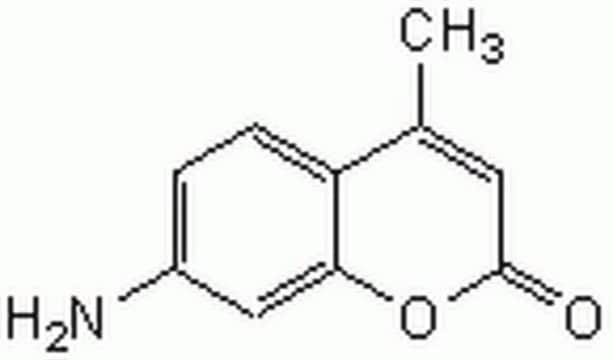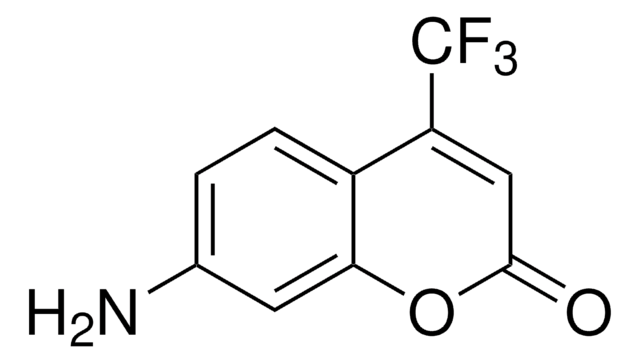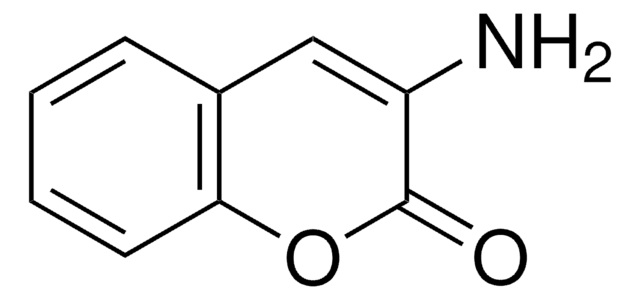28605
3-Cyanoumbelliferone
BioReagent, suitable for fluorescence, ≥98.0% (TLC)
Synonym(s):
3-Cyano-7-hydroxycoumarin
About This Item
Recommended Products
product line
BioReagent
Quality Level
Assay
≥98.0% (TLC)
form
powder
mp
≥250 °C (lit.)
solubility
DMF: soluble
alcohols: soluble
fluorescence
λex 408 nm; λem 450 nm in methanol
suitability
suitable for fluorescence
SMILES string
Oc1ccc2C=C(C#N)C(=O)Oc2c1
InChI
1S/C10H5NO3/c11-5-7-3-6-1-2-8(12)4-9(6)14-10(7)13/h1-4,12H
InChI key
IJQYTHQDUDCJEQ-UHFFFAOYSA-N
Gene Information
human ... MIF(4282)
Application
Packaging
Not finding the right product?
Try our Product Selector Tool.
Signal Word
Warning
Hazard Statements
Precautionary Statements
Hazard Classifications
Acute Tox. 4 Dermal - Acute Tox. 4 Inhalation - Acute Tox. 4 Oral - Eye Irrit. 2 - Skin Irrit. 2 - STOT SE 3
Target Organs
Respiratory system
Storage Class Code
11 - Combustible Solids
WGK
WGK 3
Flash Point(F)
Not applicable
Flash Point(C)
Not applicable
Personal Protective Equipment
Choose from one of the most recent versions:
Already Own This Product?
Find documentation for the products that you have recently purchased in the Document Library.
Customers Also Viewed
Our team of scientists has experience in all areas of research including Life Science, Material Science, Chemical Synthesis, Chromatography, Analytical and many others.
Contact Technical Service










